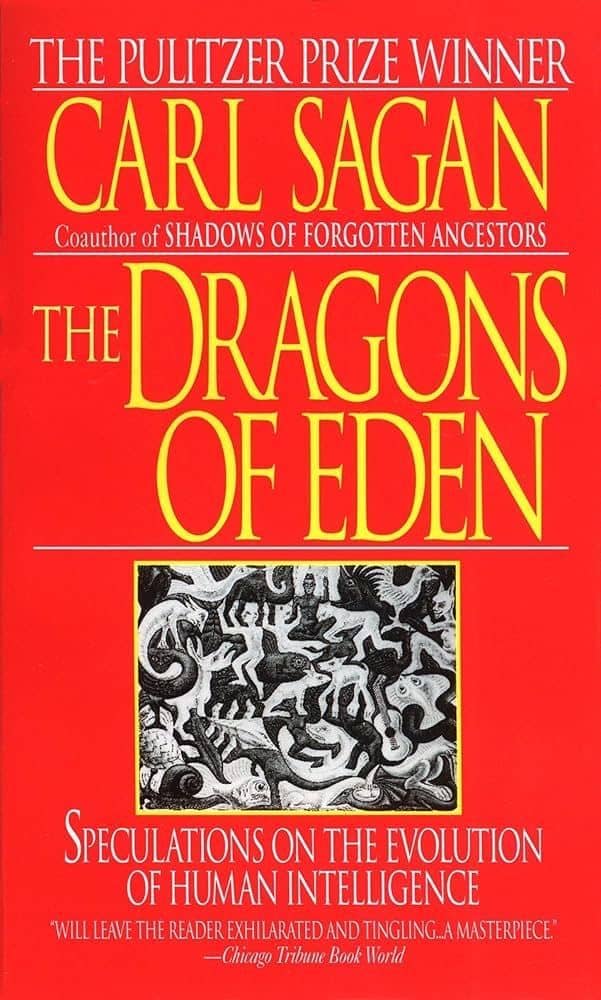Rec
Really interesting interdisciplinary speculative science book about the development of human intelligence, written in a lovely prosaic voice that makes it accessible to and engaging for anyone. There have been significant scientific advancements that add nuance and complexity to some of the ideas he discusses but it’s still useful as a conceptual framework for understanding and it’s interesting to see the conclusions he was able to draw with his brilliant mind based off of the limited information that was available at the time. He raises a lot of thought provoking questions—its greatest value is as a philosophical text—and I think it’s still more than worth your time to read today.
“As a consequence of the enormous social and technological changes of the last few centuries, the world is not working well. We do not live in traditional and static societies. But our government, in resisting change, act as if we did. Unless we destroy ourselves utterly, the future belongs to those societies that, while not ignoring the reptilian and mammalian parts of our being, enable the characteristically human components of our nature to flourish; to those societies that encourage diversity rather than conformity; to those societies willing to invest resources in a variety of social, political, economic and cultural experiments, and prepared to sacrifice short-term advantage for long-term benefit; to those societies that treat new ideas as delicate, fragile and immensely valuable pathways to the future.”
“As a consequence of the enormous social and technological changes of the last few centuries, the world is not working well. We do not live in traditional and static societies. But our government, in resisting change, act as if we did. Unless we destroy ourselves utterly, the future belongs to those societies that, while not ignoring the reptilian and mammalian parts of our being, enable the characteristically human components of our nature to flourish; to those societies that encourage diversity rather than conformity; to those societies willing to invest resources in a variety of social, political, economic and cultural experiments, and prepared to sacrifice short-term advantage for long-term benefit; to those societies that treat new ideas as delicate, fragile and immensely valuable pathways to the future.”

Jan 14, 2025
Related Recs
Rec
🌙I don't read non-fiction. I don't read scientific books either. This one, though-this one is warms-my-heart-kinda-special, and all I hope is for the reader to find the same wonder in their life, that Carl Sagan clearly held in writing this book. It made me think; wow there's really people out there who LOVE what they do. He was so passionate about Space and what's there (or what's not). His enthusiasm in explaining this, made it one of my favourites.
Jun 8, 2024
Rec
📕dude who wrote 2001. I dunno what to say except that it is one of the best sci-fi pieces or art i'v ever consumed.i like sci-fi as analogy / modern mythology. the most popular political critiques like star wars and matrix are subliminally about issues swept under the rug in mainstream discourse, but allowed and celebrated in fantasy setting, we see it explode with popularity.with real life or non-fiction we like to pretend things we don't like aren't happening, but we can face them in sci-fi.
May 30, 2023
Rec

this book literally changed my life and completely upended way i think about consciousness. octopus intelligence is the closest thing we have (and probably ever will have) to studying alien minds and this man makes the absolute most of it.
bare fascinating especially if you already like biology shit, and if you don't, trust me this will change that.
bare fascinating especially if you already like biology shit, and if you don't, trust me this will change that.
Top Recs from @taterhole
Rec

My dad teases me about how when I was a little kid, my favorite thing to do when I was on the landline phone with somebody—be it a relative or one of my best friends—was to breathlessly describe the things that were in my bedroom so that they could have a mental picture of everything I loved and chose to surround myself with, and where I sat at that moment in time. Perfectly Imperfect reminds me of that so thanks for always listening and for sharing with me too 💌
Feb 23, 2025
May 28, 2025

